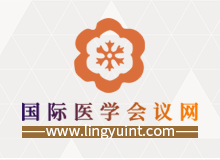◆ 会议时间:2025年5月11-15日
◆ 会议地点:澳大利亚 黄金海岸
◆ 会议简介:
2025年第26届国际放射性药物科学大会(ISRS)将于2025年5月11-15日在澳大利亚黄金海岸举行。会议由放射性药物科学学会(SRS)主办。会议旨在为世界各地的同行提供有价值的互动交流,并讨论放射性药物科学各个方面的原创研究:合成、体外和离体研究、体内生物分布或成像、放射性药理学、放射性药物学和新靶向放射性示踪剂的转化临床研究。未经许可禁止复制摘录转载本站任何内容-国际医学会议网(lingyuint.com).
iSRS 2025 - The 26th International Symposium of Radiopharmaceutical Sciences
Dates:
May 11-15, 2025
Venue:
Gold Coast Convention and Exhibition Centre
Gold Coast, Australia
Organized by :
Society of Radiopharmaceutical Sciences (SRS)
摘要征文投稿:
Download Guidelines and Example Abstracts for Authors
Abstract Submission Categories & Descriptions
Please familiarize yourself with the below categories. Selecting the correct category aids the review process.
- Carbon-11 Radiochemistry
This category welcomes scientific contributions related to the development and utility of Carbon-11 radiochemistry advancements. Topics may include the design and radiosynthesis of 11C-labelled radiotracers, reagents, and synthons and the development of novel Carbon-11 radiosynthetic methods and strategies.
- Fluorine-18 Radiochemistry
This category welcomes scientific contributions related to the development and utility of Fluorine-18 radiochemistry advancements. Topics may include the design and synthesis of 18F-labeled radiotracers or reagents, the development of novel Fluorine-18 chemical methods as well as bioconjugation strategies or similar concepts within the 18F chemistry domain.
- Radiometal & Chelator Chemistry
This category welcomes scientific contributions that cover the broad domains of radiometal ion complexation chemistry, ligand design, synthesis, and characterization, as well as the development or application of state-of-the-art bioconjugation methods involving radiometals.
- Chemistry of Other Radioisotopes
This category welcomes scientific contributions that cover chemistry related to radioisotopes other than 11C, 18F, and radiometals. Topics may include the design and synthesis of radiotracers or radiolabeled synthons as well as development or application of bioconjugation methods.
- Imaging Applications of Radiolabeled Compounds in Oncology
This category welcomes scientific contributions that cover In vitro and in vivo experimental evaluation of new radiolabeled compounds for imaging tumors including preliminary clinical studies and basic research on novel diagnostic applications in oncology using known labeled compounds.
- Radionuclide Therapy
This category welcomes scientific contributions that cover the preparation, characterization, and in vitro and in vivo evaluation of radionuclides and radiolabeled compounds for the treatment of the spectrum of different diseases including preclinical and clinical studies.
- Applications of Radiolabeled Compounds in Neuroscience
This category welcomes scientific contributions that cover in vitro and in vivo experimental evaluation of new radiolabeled compounds for imaging brain chemistry and function including preliminary clinical studies and basic research on novel diagnostic applications in Neurology using known labeled compounds.
- Applications of Radiolabeled Compounds in Other Fields
This category welcomes scientific contributions that cover in vitro and in vivo experimental evaluation of new radiolabeled compounds for imaging other than neurologic and oncologic applications, such as agents for cardiovascular, infection, inflammation, etc. Preliminary clinical studies and basic research on novel diagnostic applications in these fields using known labeled compounds fall into this category.
- Radiopharmaceutical Technologies
This category welcomes scientific contributions related to all the technological innovations that support the translation of basic radiochemical discoveries into practice. This includes advancements in Automation, Microfluidics, Process Development, Green Radiochemistry, and similarly related strategies and customizations.
- Multimodality Imaging Probes or Techniques
This category welcomes scientific contributions that cover design, chemistry, labeling strategies, and applications of multimodal imaging probes. This includes approaches to implement multimodality imaging techniques: e.g. monomolecular probe, sequential or cocktail injection of biomarkers, and combining two or more imaging modalities (PET/SPECT, optical imaging, MRI and ultrasound, etc.)
- Nanomedicine and New Biological Vectors
This category welcomes scientific contributions related to the development and application of radiolabeled nanomaterials and natural or engineered biological vectors. This includes the design, synthesis, labeling strategies, and preclinical or early clinical application of nanomedicines and biological vectors.
- Radiopharmacy
This category welcomes scientific contributions related to radiosynthesis optimization of known radiotracers, adaptation of radiosynthetic methods to regulatory compliance for patient use, their good manufacturing production, improvement in radioanalytical methods and compounding of radiopharmaceuticals for routine clinical use, and related topics.
- Targetry
This category welcomes scientific contributions related to cyclotron, reactor or linac isotope production, targetry, and purification chemistry.
- Theranostics
This category welcomes scientific contributions that cover the integration of diagnosis and treatment, as well as image-guided therapies, such as radiotherapy, chemotherapy, and immunotherapy, to predict response or improve treatment effectiveness.
- Artificial Intelligence and Computational Chemistry
This category welcomes scientific contributions related to all aspects of computational chemistry to calculate or support radiotracer design and development. Artificial intelligence applications in radiochemistry involving big data and machine learning tools for detection of molecular properties (e.g. pharmacophores), predictive analysis (e.g. molecular docking), as well as design and discovery of radiotracers and targets fall into this category.
iSRS 2025 Gold Coast Australia
Dear Colleagues and Friends,
G’day! On behalf of the SRS Leadership and the Local Organizing Committee, we look forward to welcoming you to the Gold Coast in Queensland, Australia for the 26th International Symposium on Radiopharmaceutical Chemistry in May 2025.
We are excited that the iSRS is returning to Australia and we are thrilled to have the opportunity to contribute to the long and treasured history of successful meetings. It’s been 22 years since we had the meeting in Sydney and look forward to building off the success from Nantes and the next coming up in Honolulu in May 2023.
While we are aware that Australia is not exactly around the corner for most of you, we are organizing an enticing scientific program that will attract many researchers contributing to the success of the networking and social aspects of the Symposium.
You will find many other reasons to come Down Under, a country famous for its unique natural sceneries, wildlife and cultural backgrounds. Gold Coast is an attractive spot in the warm state of Queensland; long sandy beaches, cafes, restaurants and rolling waves all at a walking distance from the Symposium venue. Nearby Surfers’ Paradise and close by Sunshine Coast are popular holiday destinations, and the area is well connected with frequent flights to the main Australian cities.
Further details will be shared with you in the coming months, but in the meanwhile we hope that you will lock this period in your 2025 agenda!
Cheers,
Giancarlo Pascali Michael Kassiou
iSRS 2025 Program Chair iSRS 2025 Program Co-Chair
◆ 参会对象:医生、医院科室主任/副主任、住院医师、医院管理者、医护人员以及从事该领域研究的科学家、研究人员、医药企业代表等等。
|

